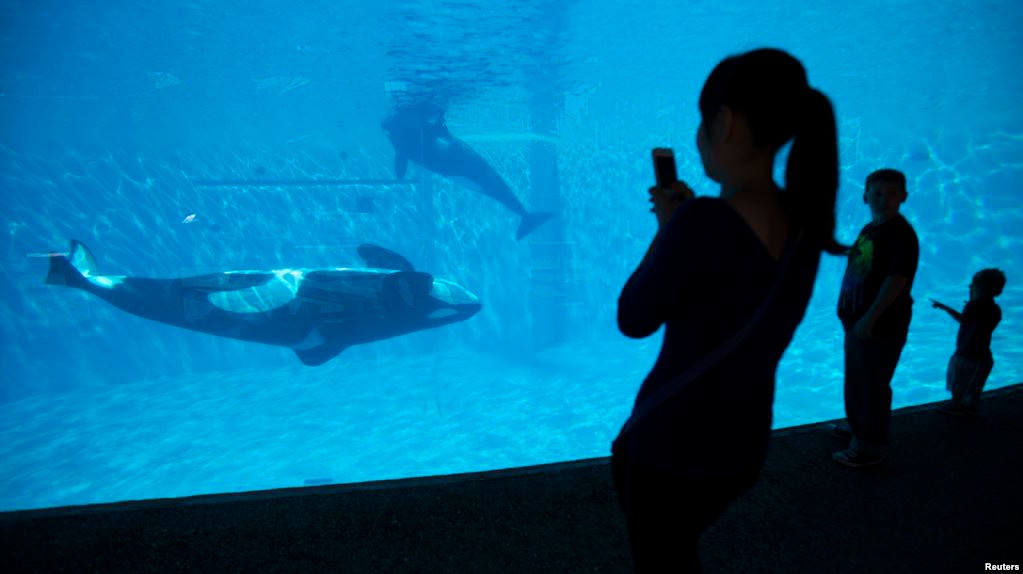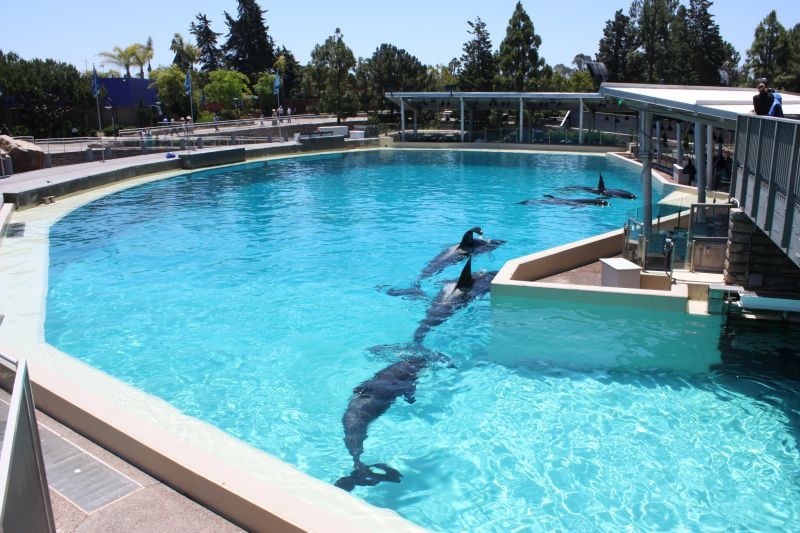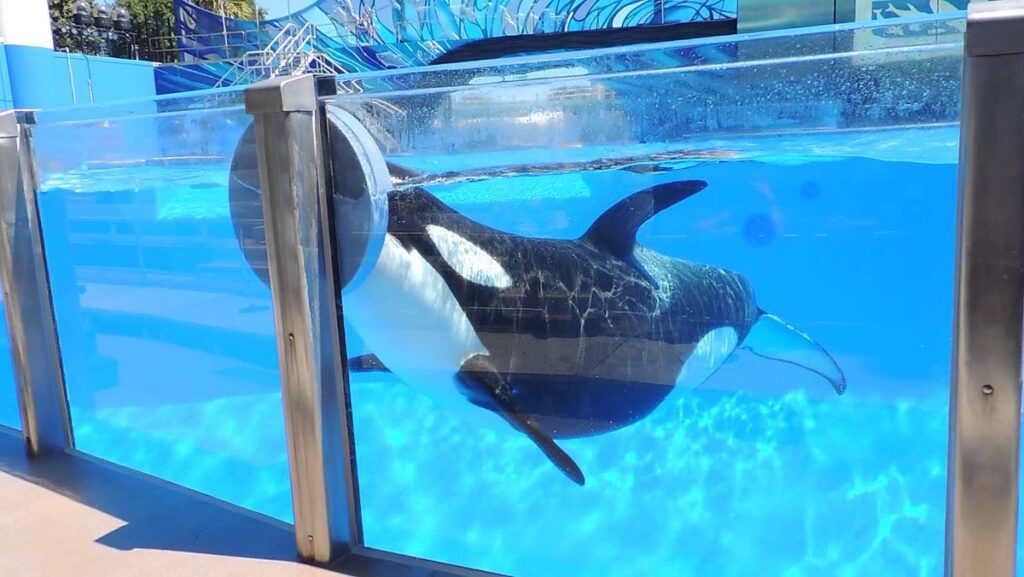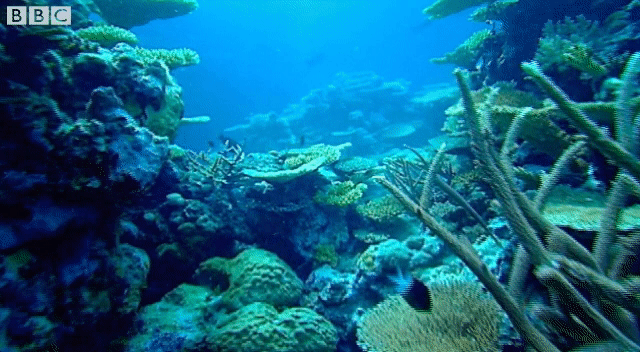There is no denying that the ocean is one of the most dynamic natural environments in the world. With its ever-changing conditions, it provides all of its inhabitants opportunities to stimulate the mind and intrigue the senses. It is the perfect environment for dolphins and whales who revel in the freedom to travel great distances at impressive speeds thanks to the ocean’s open expanse.
In a shameful and cruel contrast, the environment captive cetaceans are forced to live in is vastly different from their ocean home. Commonly nothing more than a concrete tank with not even a fish painted on the wall, the average cetacean enclosure is the equivalent of a stark, empty room. With the industrial features of gates and steel bars, there is nothing aesthetically pleasing or fascinating for the animals trapped within to enjoy.

File photo by VOA News

Photo submitted by Caitlin Fagen
No longer able to swim at great speeds, dive to depths of up to thousands of feet, travel up to 100 miles per day, hunt, forage, or explore, there is nothing stimulating for cetaceans to do outside of feeding/training sessions and performances. Although these sessions may alleviate some boredom, it’s often the same training/routines they’ve been doing for 5, 10, 20 years, if not a lifetime.
Rather than using profits to provide the cetaceans they hold captive with a more naturalistic environment, many facilities insist on spending money on expensive lighting, sets, props and costumes to increase the entertainment value of their performances for human guests. These profit-orientated decisions lead to captives relying on their trainers for stimulation. Environmental Enrichment Devices (EEDs) are captivity’s version of enrichment. Including balls, disks, hoops, floats, water jets, ice, and gelatine, these devices do not adequately satisfy a cetacean’s curiosity or need for mental stimulation, as evident of the fact neurotic stereotypical behaviours still occur despite the use of EEDS.

Screenshot of a video by Lindsey P (YouTube).
The only environment capable of allowing cetaceans to live enriching lives full of opportunities to explore, hunt and socialise is the very environment they evolved for millennia to thrive in – the ocean.
